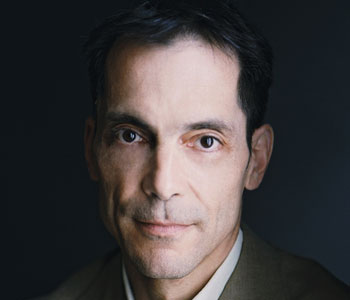Robert Burns
The Death of the American Trial
University of Chicago Press
200 pages, 9 x 6 inches
ISBN 978 0226081267
Despite what TV dramas may suggest, the American trial has become an endangered species. In 2002, less than 2 percent of civil cases ended at trial, down from 12 percent forty years earlier and 25 percent in the 1930’s. The percentage of criminal cases going to trial declined almost 70% between 1976 and 2002, to less than 5%. Though the numbers of cases have increased, they are almost always now “disposed of” – a telling metaphor – without trial. Judges decide more and more often on a purely paper record. Legal processes look more and more bureaucratic. The costs of and hurdles in front of getting “my day in court” force more citizens to accept “offers they can’t refuse.”
We have recently relearned to our grief that our major public institutions are not benignly self-regulating. The Death of the American Trial is an appeal, addressed to all Americans, to reverse this recent catastrophic collapse before we lose one of our public culture’s most important achievements.
As one federal judge put it, the trial is the “canary in the mineshaft; if it goes, if our people lose their inherited right to do justice in court, other democratic institutions will lose breath too.” More ominously, another has warned that “democracy dies behind closed doors.” What our officials and leaders do behind closed doors must be reviewable in the sunlight of the public trial.

The trial cares about factual accuracy and, unlike press conferences and congressional hearings, contains methods to achieve it. This is so basic that its importance is easy to miss.
I have practiced law for thirty-five years. I am continually moved by the power and depth of the understanding of human situations that the trial provides. This book is an effort to share that experience and to urge why we should not allow it to “go gently into that good night.”
The book begins with a simple description of what happens at trial and why it matters. (TV drama provides a very distorting lens.) The trial cares about factual accuracy and, unlike press conferences and congressional hearings, contains methods to achieve it. This is so basic that its importance is easy to miss.
Falsehood, one philosopher wrote, is the handmaiden of injustice. The trial is simple, yet comprehensive. Political purpose, legal structure, and ordinary moral sensibility come together under the “discipline of the evidence.” The trial is “the central institution of law as we know it.”
The book then recounts how establishing the vitality of the jury trial was absolutely central to the Founding Fathers. In many different ways, ensuring the availability of trial underlies the entire structure of the Bill of Rights. And the book tells the story of how the trial’s shape has been at the center of political controversy ever since.
This is no accident. The trial’s availability and nature define the most essential tensions that make up our national life. They define the balance between face-to-face argument and governance by autonomous systems. (The face-to-face character of the trials has always reminded us that legal proceedings really are somehow about justice.) The trial defines the tension between public and confidential decision-making and between personally responsible judgment and bureaucratic “rule by nobody.” Those tensions also determine the balance between citizen participation and deference to authority, between contextual good judgment and reliance on rules. They supplement national regulation in qualifying bureaucracies and markets that operate according to their own internal dynamics. The trial allows us to strike a balance between deciding what we want to accomplish and who we want to be.
Why is the trial suffering a terminal illness? We can look through a microscope or a telescope to try to answer the question. If we look closely, we will see the atrophy of the trial skills that allow lawyers to try cases and a change in the culture of judging. Many judges have embraced “managerial judging,” often designed to avoid trial by settlement or summary disposition. Costs have risen. Recent changes in legal doctrine have allowed judges to dismiss or decide cases without trial. If we take a very broad view, we can see the death of the trial as an aspect of glacial changes in our social life. In particular, we may be experiencing a drift toward an “imperial-bureaucratic” regime. The useful divisions of our modes of social ordering—among political, legal, moral, and informal—may be disappearing in favor of a more monolithic social system.
It is true that our trials do not always realize their potential. But this is not because of any flaws in their basic practices. Rather, the failings are the results of the bureaucratic and market structures within which our trials must function. The book makes some suggestions as to reforms which would improve trial practices.
The Death of the American Trial is not, however, an explanation of the death of the trial. That would suggest that the death of the trial is inevitable. Rather, the book is an appeal to citizens, lawyers, and judges to act within the spaces of freedom that our institutions provide to halt this decline and reinvigorate an important aspect of our democracy.
The second chapter of the book provides a broad historical account of the importance of the Anglo-American trial and the fierceness with which the Founding Fathers defended it. The story begins in England, where “the English jury is as old as the English state itself.” The early jury exercised enormous “law-finding” powers in an atmosphere where “true law” and “right reason” were thought to be largely congruent. In the seventeenth century, the English jury proved to be the staunchest defender of English liberties against the encroachment of the King. On the other hand, the practical reality of English criminal trials thereafter showed them often cruel, grim, and often unfair. English civil cases were strangled by layers of hypertechnical rules and procedures.
Reform eventually came to England. But the American trial had been, even in colonial times, much more self-consciously democratic, less distorted by the English class system and its aristocratic bench and bar. Americans interpreted their inherited “rights of Englishmen” according to the shared morality of ordinary citizens gathered in juries to decide criminal and civil cases. Legal formalities were less constraining. Right to counsel was more universally available.
In the political conflicts with George III, the American jury became “a symbol of the colonists’ struggle for self-government.” After independence and the ratification of the Constitution, the jury trial became “the paradigmatic image underlying the Bill of Rights” featured in three separate Amendments (the Fifth, Sixth, and Seventh). Jefferson pronounced famously, “Were I called upon to decide whether the people had best be omitted in the Legislature or the Judicial department, I would say it is better to leave them out of the Legislative.”
These views retained vitality well into the nineteenth century, though important social and political changes manifested themselves in important changes in the details of trial procedure. Democratic “true law” was yielding to the “law of rules,” though never completely. By the third decade of the twentieth century a new balance had been struck that gave us the trial as we know it, one brilliantly adapted to our contemporary needs.

The trial allows us to strike a balance between deciding what we want to accomplish and who we want to be.
This is what the death of the trial would mean for us:
It would eliminate a forum where equitable considerations moderate the rigor of the law of rules.
It would deprive us of a distinctively American forum where a citizen can tell his or her own story in public and offer the evidence to make it effective.
It would destroy a space where serious attention is paid to simple factual truth.
It would reduce serious citizen participation in self-government and likely damage the authority of the entire judicial branch.
It would roll back the hard-earned enfranchisement of women and minorities.
It would transfer power to political and technical elites.
It would distort the norms for settlement and corrode our sense of real freedom to reach compromises.
It would destroy the traditional relationship between face-to-face proceedings and the notion that legal proceedings are somehow about justice. By squeezing drama out of those proceedings, the death of the trial would impoverish the range of cognitive capacities we deploy in the law. We would both feel and see less.
The death of the trial would compress into a monolith the variety of and tensions among our modes of social ordering. They could not longer qualify or “redeem” each other. We would have less freedom to address pressing issues in different ways.
The death of the trial would render our economic systems more automatic and beyond qualification by ordinary moral norms.
It would end our ability incrementally to adjust our basic structure by norms that have their homes in other parts of our social world.
It would create a more bureaucratized world.
It would also create a world in which judges could exercise more raw discretion in the interstices of complex legal rules unstructured and unqualified by the objectivity of the real social norms that the trial realizes.
It would mean the end of an irreplaceable public forum.
It would mean that more of the legal order would proceed behind closed doors.
The death of the trial would deprive the American public of an important source of knowledge about key issues of public concern.


%20(1)%20(1).jpg)

We don't put paywalls. We don't distract you with ads. We don't sell your data.
Please help to keep this running!